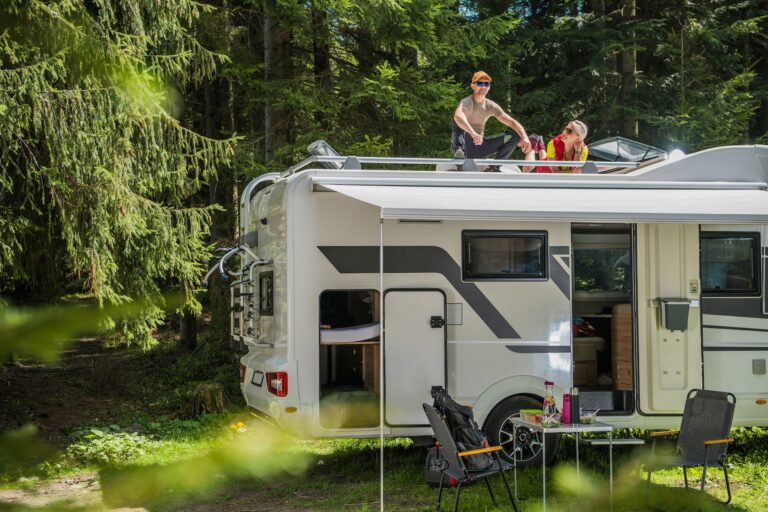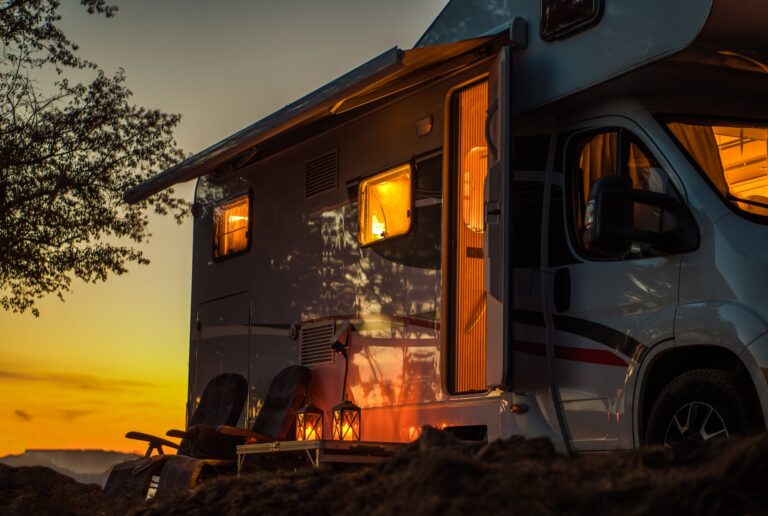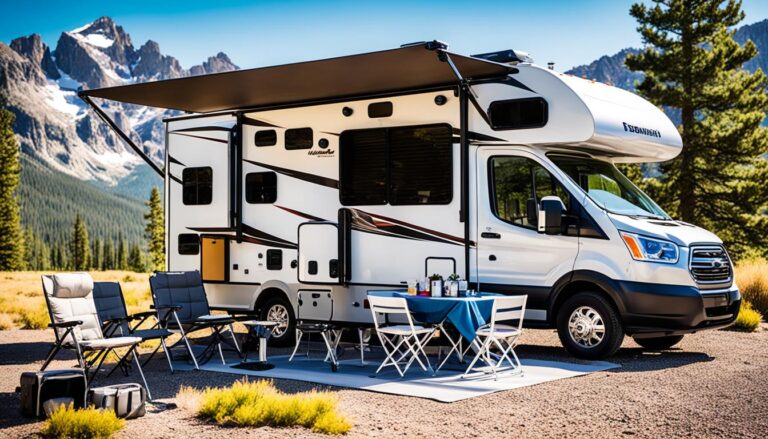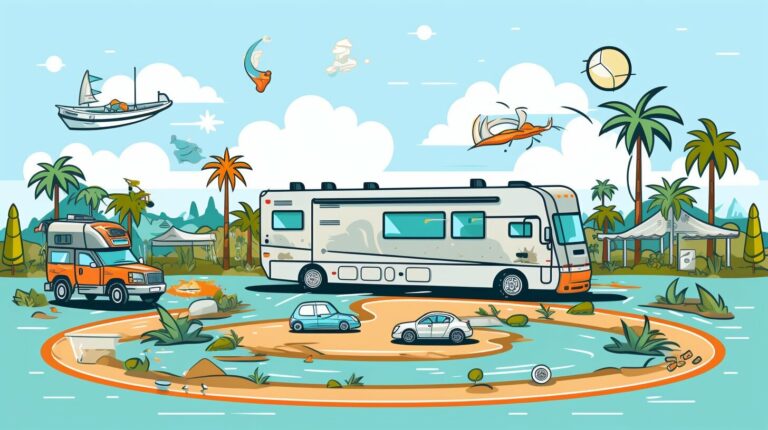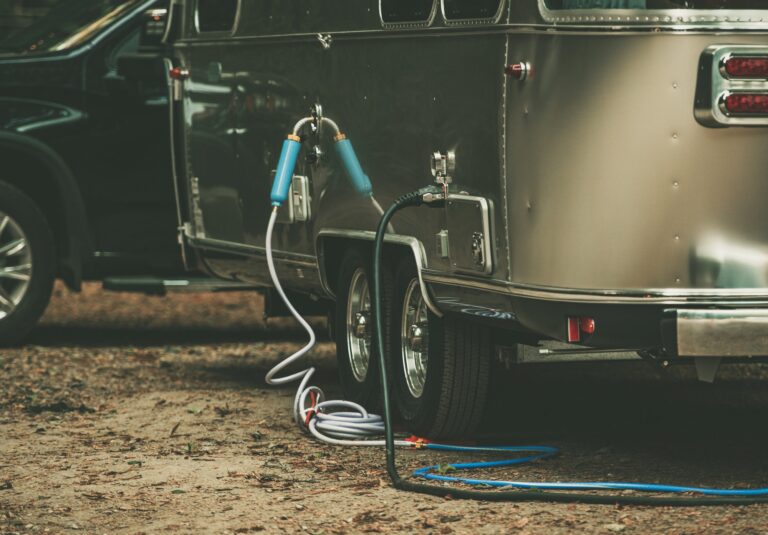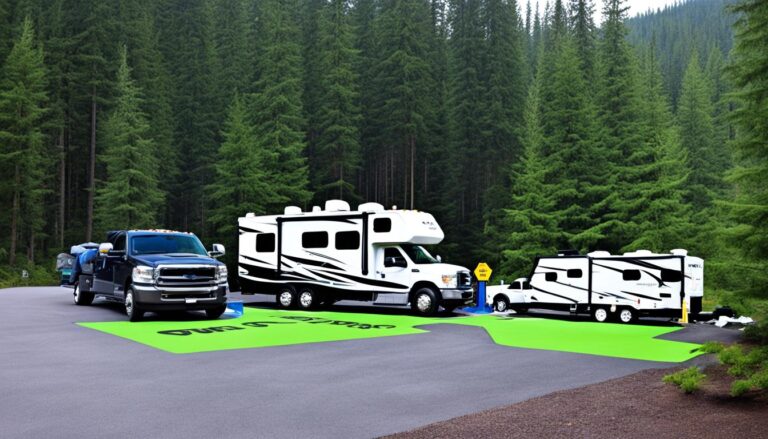Cooking in an RV kitchen can be a fun and rewarding experience, allowing you to create delicious meals while enjoying the freedom and adventure of life on the road. However, for first-time RVers, the prospect of preparing meals in a small, mobile space can seem daunting. In this comprehensive guide, we will explore essential RV kitchen tools, appliances, and meal planning tips to help you navigate your new culinary environment with ease and confidence.
1. Stock Your RV Kitchen with Essential Tools and Appliances
An efficient and well-stocked RV kitchen is key to creating enjoyable meals on the go. When selecting tools and appliances, prioritize items that are compact, multi-functional, and easy to clean.
Essential RV kitchen tools:
- A set of nesting pots and pans, ideally with removable or collapsible handles for easy storage.
- A compact cutting board that can double as a serving platter or prep surface.
- A set of sharp, high-quality knives, including a chef’s knife, paring knife, and serrated knife.
- Collapsible or nesting mixing bowls and measuring cups to save space.
- A set of silicone or nylon cooking utensils, such as a spatula, ladle, slotted spoon, and tongs, to avoid scratching your pots and pans.
- A can opener, bottle opener, and corkscrew for easy access to canned goods and beverages.
Compact RV kitchen appliances:
- A portable induction cooktop or propane stove for versatile cooking options.
- A compact microwave or convection oven for quick and easy meal preparation.
- A slow cooker or multi-cooker, such as an Instant Pot, for convenient, hands-off cooking.
- A compact refrigerator and freezer to keep perishable items fresh and safe.
- A small coffee maker, electric kettle, or French press for your morning caffeine fix.
2. Organize Your RV Kitchen for Efficiency and Easy Access
A well-organized kitchen is crucial for efficient meal preparation and cooking in an RV. Utilize creative storage solutions and make the most of your limited space.
RV kitchen organization tips:
- Use adjustable shelf organizers, stacking shelves, or drawer dividers to maximize storage space and keep items easily accessible.
- Store frequently used items, such as utensils and spices, in easy-to-reach locations.
- Use magnetic strips or hooks to store knives, utensils, and other tools on the inside of cabinet doors or on the wall.
- Invest in stackable or collapsible containers for dry goods and leftovers to save space and reduce waste.
- Label your containers and pantry items to make it easy to find what you need while cooking.
3. Plan Your Meals in Advance
Meal planning is essential for efficient grocery shopping, budgeting, and cooking in an RV. Plan your meals based on your travel itinerary, available storage space, and personal preferences.
Meal planning tips for RVers:
- Create a meal plan for the duration of your trip, factoring in the number of meals you’ll need to prepare and any dining out or takeout options.
- Use a meal planning app or create a simple spreadsheet to organize your meals, ingredients, and shopping list.
- Plan for versatile ingredients that can be used in multiple meals to save space and reduce waste.
- Consider incorporating shelf-stable or canned items into your meal plan to reduce reliance on refrigeration and extend the life of your groceries.
- Plan for easy, one-pot meals that require minimal prep and cleanup, such as stir-fries, stews, and pasta dishes.
4. Shop Smart and Stock Your RV Pantry
A well-stocked RV pantry is key to creating delicious and satisfying meals on the road. Shop wisely to ensure you have everything you need for your planned meals and snacks.
RV pantry stocking tips:
- Make a detailed shopping list based on your meal plan, and stick to it to avoid overbuying or impulse purchases.
- Opt for compact and lightweight packaging when possible, such as resealable bags or plastic containers, to save space and reduce waste.
- Stock up on versatile, non-perishable pantry staples, such as grains, beans, pasta, and canned goods, to create a variety of meals without relying on fresh ingredients.
- Shop at local markets or grocery stores during your travels to replenish fresh produce and perishable items as needed.
- Store fresh produce in breathable mesh bags or designated produce storage containers to extend their freshness and prevent spoilage.
5. Master the Art of RV Cooking
Cooking in an RV kitchen can be a unique and enjoyable experience, but it may require some adjustments to your usual cooking techniques and habits.
RV cooking tips for beginners:
- Be mindful of your energy and water consumption when cooking, as RV utilities can be limited. Opt for energy-efficient appliances and water-saving cooking techniques, such as using a pressure cooker or cooking one-pot meals.
- Adjust your cooking times and temperatures to accommodatefor the smaller size and power of RV appliances. Be patient and monitor your food closely to ensure even cooking and avoid burning.
- Practice proper food safety by keeping raw meats and produce separate, washing your hands and surfaces frequently, and monitoring the temperature of your refrigerator and freezer.
- Get creative with your cooking methods and utilize your outdoor space. Consider using a portable grill, campfire, or outdoor propane stove for additional cooking options and to enjoy the outdoors while you cook.
- Share the responsibility of meal planning, cooking, and cleanup with your travel companions to make the process more enjoyable and efficient.
In Conclusion
Embarking on a journey in your RV is an exciting adventure, and with the right tools, organization, and planning, cooking in your RV kitchen can become an enjoyable and rewarding part of the experience. By stocking your kitchen with essential tools and appliances, organizing your space, planning your meals in advance, shopping smart, and mastering the art of RV cooking, you’ll be well on your way to creating delicious and satisfying meals on the open road.
To recap, here are the key points covered in this beginner’s guide to RV kitchen essentials and meal planning:
- Stock Your RV Kitchen with Essential Tools and Appliances: Invest in compact, multi-functional tools and appliances to maximize your limited kitchen space.
- Organize Your RV Kitchen for Efficiency and Easy Access: Utilize creative storage solutions and keep frequently used items within reach.
- Plan Your Meals in Advance: Create a detailed meal plan based on your travel itinerary, storage space, and personal preferences.
- Shop Smart and Stock Your RV Pantry: Make a detailed shopping list, opt for compact packaging, and stock up on versatile pantry staples.
- Master the Art of RV Cooking: Be mindful of energy and water consumption, adjust cooking times and temperatures, practice proper food safety, and get creative with your cooking methods.
By following these tips, you’ll be well-prepared to embrace the unique challenges and joys of cooking in your RV kitchen. So, gear up, plan your meals, and hit the road, knowing that culinary adventures await you at every stop along the way. Happy travels and bon appétit!

